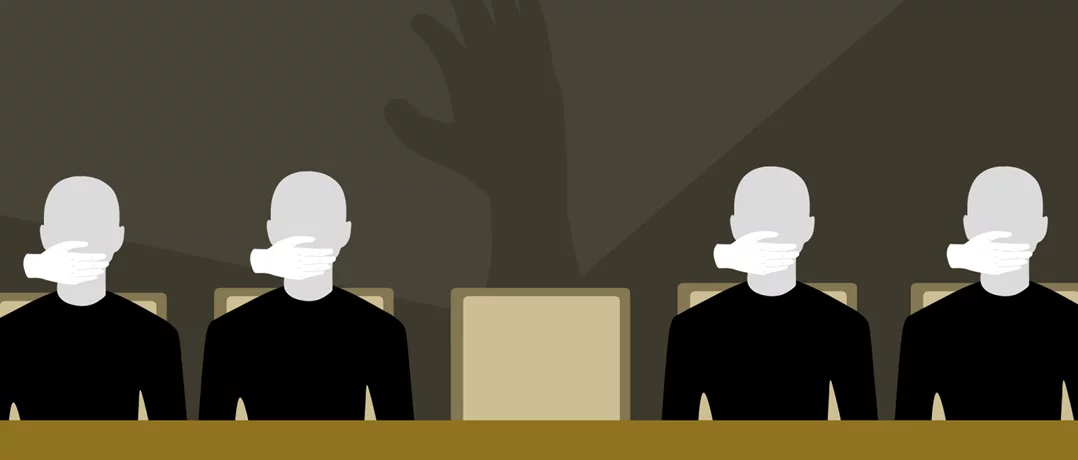A look at the absence of Shiite opposition in Lebanon amid Hezbollah’s continued dominance and the state’s failure to restore authority.
Liberating the Shiite voice: a national struggle, not a sectarian one
Liberating the Shiite voice: a national struggle, not a sectarian one


Since the end of the most recent war, which resulted in Hezbollah’s military defeat by Israel, Lebanese political circles have been asking a pressing question: what is the alternative within the Shiite community to Hezbollah? Where is the Shiite opposition capable of expressing an independent stance? And why has no clear Shiite voice risen to challenge the party’s dominance or present a different vision?
These questions are not new; they were raised before the war and remain valid after it. Yet answering them requires a deeper understanding of the political and social constraints that continue to prevent the Shiite community from freeing itself from Hezbollah’s control and the web of dependency the party has entrenched over decades.
The lost opportunity of March 14
During Lebanon’s political struggle to end Syrian military tutelage, the Shiite opposition played a significant and visible role. Prominent intellectual Habib Sadiq founded Al Manbar Democrati (Democratic Forum), which represented the Muslim counterpart to the Christian Likaa Qornet Shehwan, a coalition sponsored by the late Patriarch Nasrallah Boutros Sfeir. At that time, a genuine hope emerged for the rise of an independent, national Shiite movement.
However, that hope was soon crushed. The so-called “Quadripartite Agreement”, which brought together the March 14 coalition with the Amal Movement and Hezbollah, dealt a fatal blow to the nascent Shiite opposition. The deal effectively marginalized independent Shiite voices, trading them off for short-term electoral gains. In the eyes of many, the allies of yesterday had “sold out” the independent Shiites to the dominance of the Amal-Hezbollah duo, abandoning what became known as the Shiites of March 14 without any political backing.
Enduring dominance despite defeat
One cannot ignore an essential truth: Lebanon’s political forces across all sects have failed to confront Hezbollah’s grip on the state. For decades, the party has dictated the rhythm of national politics, blocking presidential elections, shaping governments, and determining the country’s strategic choices. It has also extended its influence deep into Lebanon’s military, security, judicial, and administrative institutions.
Even after its military defeat, Hezbollah continues to hold the strings of internal power, setting conditions for government formation and securing its preferred candidates for key state appointments. Recently, both Lebanese citizens and the international community witnessed the party openly defy the Prime Minister’s decision by organizing the Raouché Rock event, an unmistakable display of authority that overshadowed the state itself.
In light of this, a painful question arises: if the entire Lebanese political class, backed by the state’s military and security institutions, remains incapable of enforcing the rule of law against Hezbollah, how can an unarmed Shiite dissident confront it alone? And how can an ordinary Shiite citizen dare to take a political stance against the party in such an environment?
A national, not sectarian, battle
It has become clear that all Lebanese factions, whether through weakness or complicity, have contributed, in one way or another, to entrenching Hezbollah’s control over the Shiite community and the national decision-making process. Thus, the struggle to liberate the Shiite voice from Hezbollah’s dominance is not an internal Shiite matter; it is a national battle that demands shared responsibility from the state and political forces across all sects.
This mission begins with two essential steps:
1. Monopolizing arms under the authority of the state, with no exceptions and across the entire Lebanese territory.
2. Restoring the state’s authority and presence in predominantly Shiite areas, ensuring that the prestige of Lebanon’s military and security institutions surpasses the influence of the party.
Only then will Shiite citizens begin to feel secure and confident in their state, allowing them to express their opinions freely and participate in a renewed, pluralistic political dynamic within their community. At that point, Shiite opposition figures will be able to operate without fear or intimidation, transforming from isolated voices into a cornerstone of Lebanon’s long-overdue statehood project.

